Ke Zhongping Yan'an Past
Author:Art newspaper Time:2022.06.24

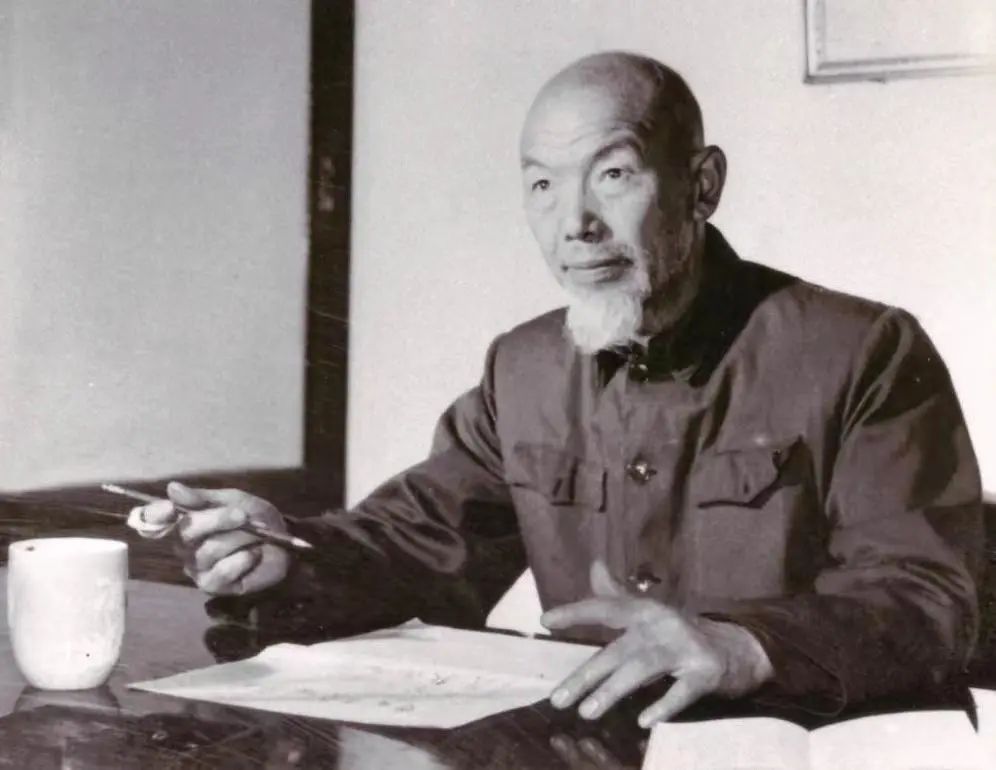
Ke Zhongping
This year is the 80th anniversary of Comrade Mao Zedong's "Speech at the Yan'an Literature and Art Symposium" (hereinafter referred to as "Speech"). At this important historical moment, we miss our relative Ke Zhongping. In November 1937, the bumpy Ke Zhongping came to Yan'an by the party organization. Everything in Yan'an made him feel so fresh and holy. Yanhe Water, Pagoda Mountain, and the Loess Mountains like a buns made him fascinated ... Especially Yan'an's hot revolutionary enthusiasm, the high anti -Japanese atmosphere of the anti -Japanese atmosphere suddenly suddenly, all of a sudden, suddenly suddenly suddenly. He melted him. Everything in the border area was an excellent praise object of poetry ... The poet's talent has played a big battlefield.
Ke Zhongping left from November 1937 to Yan'an to the second half of 1947. After 10 years of living and working before and after Yan'an, he integrated into Yan'an's rich literary and artistic work throughout his body. The important initiator and practitioner of many literary and artistic activities during the Yan'an period. This is a detailed record in the "Yan'an Literature and Art Movement Ji Sheng: 1937.1-1948.3" compiled and published in 1987.
Ke Zhongping is the party's literary thought, "Our literature and art are all for the people. First of all, it is a firm practitioner for workers, peasants, and soldiers. With his absolute loyalty to the party and full revolutionary passion, he wrote many works such as poetry and drama that he was good at hearing, understanding, and understanding the party's line policy with the art form he was good at hearing, understanding, and understanding. Instead of the morale of the military and civilians, it has been highly evaluated and cared for support from leading comrades such as Mao Zedong, and has made important contributions to Yan'an's literary and art cause. This is the pride of Ke Zhongping as a revolutionary literary warrior, and it is worthy of his honor of "Yunnan Sanjie"!
Let ’s recall some of the past in Yan'an in Yan'an. From various aspects, to know this revolutionary poet and popular poet, in order to commemorate the 80th anniversary of the publishing of the speech, and to commemorate the spirit of loyalty in the" Speech ", walking in literature and farming in life as workers and peasants. The 120th anniversary of the "Cyclonus Poet" on the Bing service road.
The first revolutionary opera group
The establishment of the people's theater troupe
One day in April 1938, Mao Zedong participated in the opera party organized by the Workers 'Congress of the Shaanxi -Gansu -Ningxian District Workers' Congress: We should do what the masses like, but the content is too old and there should be new revolutionary content. Ask Ke Zhongping: Should I do it? "Should, should." Ke Zhongping answered the question affirmatively and started to implement it the next day. Soon the first new and revolutionary opera group born under the leadership of the Communist Party of China under the leadership of the Communist Party of China, Shaanxi Border Public Theater Troupe. "Adopt new methods of old forms to improve the art of people, to promote the force of the anti -Japanese war, and promote normal entertainment." Where to go? Go to the people. "This is the literary road practiced from beginning to end.
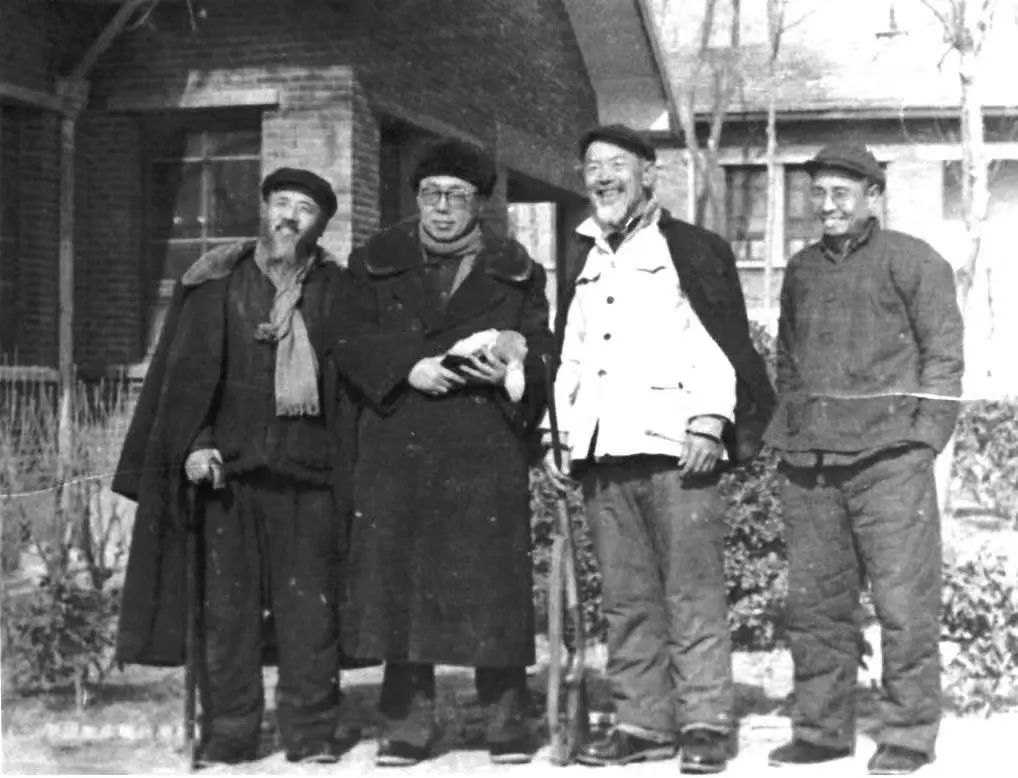
From left to right: Ma Jianyu, Tian Han, Ke Zhongping, Liu Qing took a photo
From the spring of 1939 to the spring of 1940, the Troupe of the People went from Yan'an to nearly ten counties and towns in the remote Yanchuan and Wayaobao in northern Shaanxi. The drama, etc., to promote the anti -Japanese country to save the country, was warmly welcomed by the masses, caused a strong response among the military and civilians, and was known as the "small long march" that promoted the Anti -Japanese Revolution. The people's theater implemented Mao Zedong's literary thoughts with a tenacious spirit. "Go to life, go to the masses, and send the show to the grassroots." Mao Zedong once told Zhu De. The people's theater troupe often went deep into the masses and promoted the revolutionary theory. "Liberation Daily" contains the article: "The people's theater troupe is the most literary and artistic group in the eight years of the Yan'an Anti -Japanese War." Some grass -roots cadres said, "You (referring to the people's theater) acting one day, which is better than our work." The troupe went to the countryside to go to the countryside. Tour, according to the new shows that are close to the people according to what I have seen and heard along the way, they are warmly welcomed by the masses. They are accused of "our own company" and being affectionately called "our own troupes. "". In November 1944, the State theater troupe won the "Models and other models such as literature and art" awarded by the Cultural and Education Conference of the Shaanxi -Gansu -Ningxin District Cultural and Education Conference.
Mao Zedong and other central leaders watched their performances many times, praising these plays both popular and artistic, reflecting Chinese courage and Chinese style. At the beginning of the establishment of the people's theater, Mao Zedong, Zhou Enlai, He Long, Li Fuchun, Qin Bangxian, Chen Yun, and other leaders sent money to the troupe and items seized by some battlefields to support the survival and development of the troupe.
Nationalization of popularization
Yan'an Street Poems
The "street poem" during the Yan'an period is a major feature. It is also known as the "Single Poetry" and "Wall Poetry". It will not propagate the party's policies and policies of the party, expose the crimes of Japanese aggression, and inspire the military and civilians to fight against Japan. Walls, rocks, etc. are named or printed as leaflets. In January 1938, Ke Zhongping took the lead in launching the Yan'an street poetry movement with several poets. He also established Zhaoge Club and published the "Declaration of Street Poetry Movement": "Write -Anti -Japanese War, Nationality, Volkswagen! Sing it - - Anti -Japanese War, nation, popular! "Street poems are mostly based on the War of Resistance Against Japan. They are short and powerful, easy to understand, and have strong propaganda. They have played a great role in inspiring military and civilian fighting spirit. They stated street poems in many places on the streets and walls of Yan'an, and they also drove many people to participate, so that the street poetry movement flourished in a wider range of the border areas. "New China News" has also opened a column of "Selection of Street Poems". Ke Zhongping wrote many short and sharp poems on the streets, fields and battlefields. His high and excited recitation of romanticism has greatly played the role of poetry in propaganda and encouragement. He was praised by Comrade Xiao San as the first and most powerful sponsors of Yan'an Poetry Movement and the shouting poet who recited poetry. Ke Zhongping wrote the famous recitation poem "Comrade Comrade" written by the Sixth Plenary Session of the Sixth Central Committee of the Party. He recited it at the meeting and wrote it on the lime wall across the Yan'an City Auditorium. "Comrade Comrade" expresses a nicely praise of the party's sincere praise of the party with a simple and bright poem, vivid and appropriate metaphor, and expressing the great unity and combat role of the party in the war of the nation's liberation. Like the "five fingers a strong palm of the fingers", we united around the Party Central Committee. Ke Zhongping always expresses his loyalty to revolutionary causes with the spirit of romanticism and fiery passion, and uses poetry to promote the party's policy. "Protect our interests" is his policy in response to the protection of farmers' vested interests during the land revolution period, and was subsequently promoted to some anti -Japanese democratic bases. To spread.
The street poetry movement not only provides another way for poets' creative activities, but also produces a large number of excellent works; not only expands the influence of poetry, but also more importantly. And participating in writing, the poets write down the verses that the masses think and read out, and then teach them to the masses, which not only play a role in promoting the blindness and literacy, but also enables the masses to understand a lot of revolutions in poems that can be seen from the end of the streets and alleys anytime, anywhere. The reason, improvement of ideology and awareness, and the enthusiasm of the Anti -Japanese War has also increased. The street poetry movement played its own unique role in the propaganda of the Anti -Japanese War in the border area, becoming an important part of Yan'an literature and art history. It is one of the biggest contributions to Ke Zhongping to Yan'an poetry.
Speaking at the Yan'an Literature and Art Symposium
In May 1942, the Central Committee of the Communist Party of China convened a symposium to a literary and art worker in Yangjialing, Yan'an, which was known as the "Yan'an Literature and Art Symposium" in the history. The meeting believes that literature and art should be well used as a powerful weapon to unite the people, educate the people, fight against the enemy, and eliminate the enemy. Ke Zhongping made a lively and interesting speech on the performance of the people's theater to perform and was warmly welcomed and condolences by the people at the second meeting. He said: "We are playing" Little Put of Niu ", do you look down on" Little Put of Cow "? People like it very much. You have to go to our area to find a troupe. There are many roads of red dates, you can find it. "Many people laughed, Mao Zedong also smiled and then said that the popularity of literature and art should be combined with improvement work. If you are always "Small Niu", there will be no eggs. The affirmation and encouragement of leaders such as Mao Zedong made Ke Zhongping deeply encouraged. After the founding of the People's Republic of China, Mao Zedong also kept this matter. At the National People's Congress, Chairman Mao also said when shaking hands with Ke Zhongping that Comrade Ke Zhongping, where do you go and where the eggshells are.
After the Yan'an Literature and Art Symposium, Comrade Mao Zedong made a conclusion, emphasizing that the party's literary and art workers must fundamentally solve their positions and attitudes, and clarify that revolutionary literature and art are the fundamental directions for serving workers, peasants and soldiers. The artistic practice led by Ke Zhongping also provides important materials for Mao Zedong's literary thoughts and theories. As one of the two Yunnan people who participated in the conference, Ke Zhongping was lucky to take a photo with more than 100 participants, leaving precious images. The symposium gave Ke Zhongping a deeper understanding of literature and art, farmers and soldiers, and more firm confidence in this avenue.
Mao Zedong Zao Garden encourages "Three Sages"
Due to the outstanding achievements of the people's theater in the service of arts and farmers and soldiers, in the autumn of 1943, Mao Zedong met Ke Zhongping, Yang Zuang Township, and Ma Jianyu in Yan'an Zaoyuan. Mao Zedong said: Please come to "Sanxian", there are two "Mei Yonggong" (Ke, Ma), a "Tai Taijun" (Yang), you are the pioneers of the Soviet Area, one of the Anti -Japanese War Troupe, and one of the people. The sowing team that is popular with the masses will spread the seeds of the anti -Japanese seeds wherever they go. Mao Zedong also said that Yunnan's poet Ke Zhongping is really strong. Your people's theater troupe was established several years later than the Anti -Japanese War Theater, but it was born in the case of poor creative power and material conditions. , Rely on everyone to shrink food to solve funding problems. "Ma Yigong" adheres to the combination of literature and art and the masses, follows the road of popularization, deepen the base, capital base, and continuously created and performed repertoires such as "One Road", "Check the Road" and "Good Man". Every time, it will be dawn. This is good. It is both popular and artistic, reflecting Chinese style and Chinese style. This is Mao Zedong's high summary and evaluation of the people's theater from birth to growth, from the play to performance, from living conditions to working environment, from creative methods to artistic roads, and affirmation of the direction and road of the people's theater troupe. Ke Zhongping's affirmation.
Create a lot of reflection
The drama of the grassroots model figures
Ke Zhongping, who insisted on the popular road of literature and art, was transferred to the Shaanxi -Gansu -Ningxian District Cultural Association in 1941, and often went to the countryside to live and work with farmers to find creative materials. In the winter of November 1943, Ke Zhongping, who was sick, still led the Northwest Cultural Troupe to Longdong Division for publicity and performance, and also found materials for the creation. He had rushed to Qingyang, where the Longdong Specialty Department was located in the early days. When the Northwest Cultural Workers' group arrived, he had created a large -scale opera "Sun Wanfu Back" and was soon moved to the stage.
"Blood Tears" stills
In the town of Huachi County in Shaanxi -Gansu -Ningxin District, he and Zhang Zhencai, a special labor model, made a good friend. A piece of firewood on the slope, a padding of sheep, a stingy, a shovel, a bag of cigarettes and sending them over again, all night, saying ancient theory. In the Spring Festival of 1944, Ke Zhongping spent at Zhang Zhencai's house. The poet and them play rice cakes with rice cakes. They drink rice wine, not to leave their mouths, and the songs are not separated. The poet villagers read by the bearded poet like to listen. The villagers' simple and joyful Yingchun joy and laughes make the poet intoxicated. Ke Zhongping fully experienced this joy and simplicity, and also collected a lot of materials. Many of these in -depth life experiences are reflected in his large -scale opera "Model City Village" works, and the show has also won the first prize of Yan'an Drama Creation. Yan'an old farmer Zhang Yongtai said that he used to meet Ke Zhongping on the street before, always treating him as a horse. It wasn't until 1947 to participate in the 70th birthday of the old man in Xu Teli. When Ke Lao recited He Shoushi, he learned that the person who had always been regarded as a horse was the director of the Shaanxi -Gansu Ningbian District Cultural Association. After Ko Zhongping knew, he humorously humorously replied with "the people want to enjoy blessings, landlords become farmers, and the world wants Yongtai, and poets change their horses."

"Twelve sickles" stills
In the village where the "Maqua Guerrilla Group", which was commended by the bandit in the Longdong Border of the Shaanxi -Gansu -Ningxian District, was found to find a guerrilla team member and the villagers to discuss the investigation. stop. After obtaining a large number of one -handed material, he wrote another large opera "Maqua Guerrilla Group" every night. In order to strengthen the artistic and authenticity of the drama, Ke Zhongping also deliberately invited the guerrilla members to the Qingyang discussion, finally completed the script creation, and finally renamed it "Invincible Militar". For 22 days. In August 1946, the Northwest Cultural Troupe officially rehearsed "Invincible Militia". When they performed in the auditorium of the Central Party School of Yan'an, Mao Zedong and the central leaders came to watch it. The Liberation Daily also published three articles. Give high evaluation, saying that this is the "important gain" of opera creation in the Liberated Area, and it is the "great creation" of Comrade Ke Zhongping. The play not only performed many performances in Yan'an until the war of liberation, the Northwest Cultural Regiment played where the first field troops were fighting, and where the show played, it strongly cooperated with the liberation struggle in the Northwest.
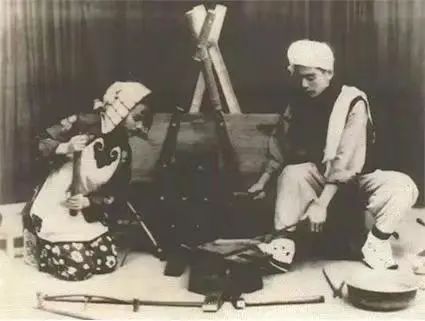
Ke Zhongping said: "Let's act as a mass work. If you don't know them, don't know them, don't play with them, your play will not play well, and you can't play a role that should be played." I compiled a few words of faithful tour: "The chicken baby called the dog and the baby to bite, and our people's theater troupe came. A pole big flag was inserted on the bank, and I welcomed your loved ones home."
The designated by Mao Zedong
One of the writers of "Liberation Daily" supplement
In September 1942, in order to run the fourth edition of the "Liberation Daily", Mao Zedong and the editor -in -chief of the newspaper Shu Qun repeatedly discussed and drafted a list of 16 writers. Ke Zhongping was one of the 3 writers. Essence In his name, Mao Zedong specified the writing direction of the article in detail and the number of words that needed to be completed every month. It was mainly popularized in literature and culture. Other attached, 12,000 words per month.
Subsequently, Mao Zedong organized a banquet for this and said after the banquet: Zhu Gong drove, thank you very much. Put a feast in Zaoyuan today. He read out the fourth edition of the "Liberation Daily" method and its specific content, and said that the party newspaper was done well. I think that experts and scholars must be willing to be responsible for the fourth edition. Everyone reads Mao Zedong's meeting as a draft, and they all enjoyed it. Everyone chatted while eating, and they had begun to have fun. Only Ke Zhongping still sat there, eating and drinking, endless. Mao Zedong asked the guards to send three bowls and handed it to Ke Zhongping and Shu Qun. Ke Zhongping said, thanks to you, it was you who gave 300 yuan to let me start with the people's theater troupe. Mao Zedong said, Lao Ke, you bring a troupe, running around all year round, hard work, let you suffer suffering, drink, this is comforting wine. Ke Zhongping said, when I was used to it, I was willing to be with the people. Seeing that time was not too early, Shu Qun quietly wrote a strip to carry Mao Zedong to Ke Zhongping with Mao Zedong, and persuaded him to stop drinking. Unexpectedly, Mao Zedong was intercepted. Keep the two and continue to drink. It wasn't until Ke Zhongping couldn't drink anymore, and Mao Zedong sent it to the door of the house and watched them away. Ke Zhongping drank too much, rode on the left and right, and finally fell down. Shu Qun was supported by the horse, but he couldn't help it. As a result, both of them fell asleep on the ground. When the good dream was, he was awakened. He looked up and found that it was Mao Zedong standing in front of him. There was also the only small car presented by Yan'an next to him. The chairman arranged for the car to send them back to sleep. This is the famous Ke Zhongping's "Zaoyuan Drunk".
Create a lot of poems to praise Yan'an
The poet took "the popularization of poetry and drama" as the goal of creative goals until the end of life, and he created a large number of poems to praise workers, peasants and soldiers throughout his life. Looking at the dozens of poems during the Yan'an period, all of them are full of enthusiasm for the love of the party, the motherland, and the love of the Yan'an Revolution. The short poem "Yan'an and Chinese Youth" is a to some extent to evidence of the spirit of Yan'an. After vividly, the bloody youth pursuit of the truth after the outbreak of the Anti -Japanese War and went to Yan'an to experience the historical trend of the era of the times. The reason for "going to Yan'an" is not afraid of "going to the bottom of the feet".
Ke Zhongping is reciting poems
The poem shows the influence and attraction of the poet's popular revolutionary enthusiasm and the impact of fighting life on progress. The poet keenly discovered the relationship between Yan'an and the tendency of Chinese youth in this era, and praised the spirit of the Yan'an Revolution and the enthusiasm of the Chinese youth. "(Young people ask Yan'an), a" answer "(youth Song Yan'an), a" summary "(Summary" (Yan'an Song Youth), the folk song structure, the language is vivid, novel, and full of life, especially this clever "summary". The revolutionary pride of young people was sublimated before expressed the sublimation of the young people. The poem is not only a chanting of Yan'an, but also an eunuch of youth. It is also an praise of the spiritual call for Yan'an and young people, and the desire of youth to "go to Yan'an".
In May 1938, Ke Zhongping created the earliest narrative poem "Self -Defense Forces", the earliest narrative poem "Self -Defense Force", which described the farmers' struggle in the liberated area. He wrote in the foreword: "Our literary and artistic direction is the anti -Japanese war, the nation, and the public. This direction uniforms the content and form of our literary works. We are going forward in this regard. "The whole poem describes the story of the Farmers' Self -Defense Forces in cooperation with the regular troops to defend the hometown and self -defense and rape, reflecting the battle life of the Self -Defense Forces and the peasant of the farmers New appearance. After listening to Ke Zhongping's recitation, Mao Zedong shaking hands with him cordially and giving enthusiastic encouragement to praise him as the owner of the work and peasants as a poem. He affirmed his use of the use of folk songs and the efforts of the popularity of poetry. Take his poem back to see it. A few days later, Mao Zedong returned the poem, and made a modification in some places, and approved the eight words "This poem is good, publish it quickly." In this way, the "Self -Defense Force of the Border Zone" soon published an exception in the CPC Central Committee's theoretical journal "Liberation" Weekly.
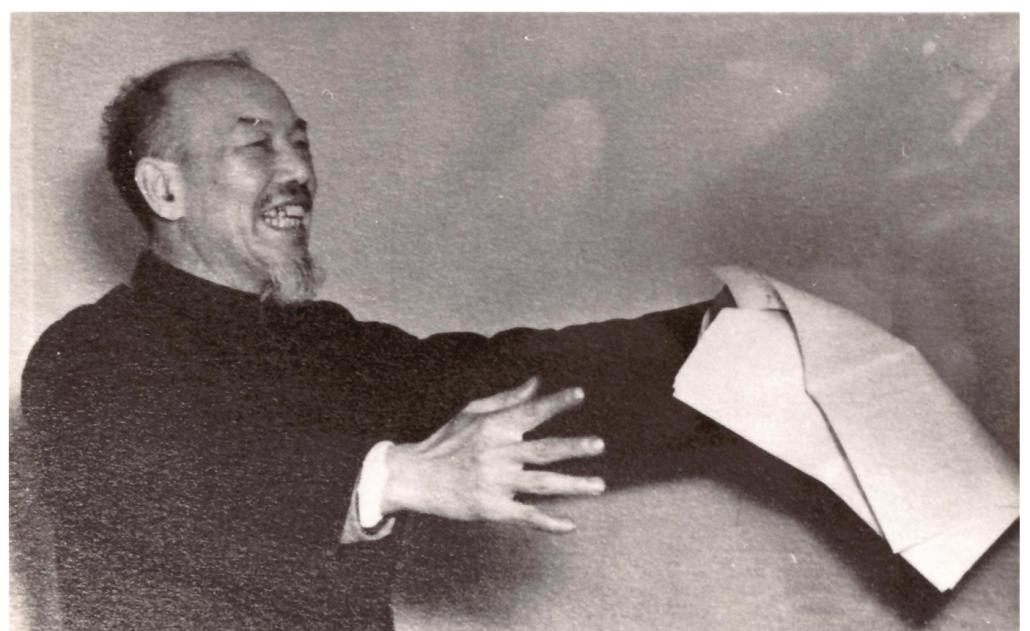
In the long poem, "One mountain/one mountain on the right/a Sichuan turns in the two mountains/Sichuan water shouts to go to the Yellow River/Turn the wall here/where the wall is bent/the direction of it will never change/ The Yellow River was unwilling ... "In this paragraph, it was also made up by the musician and sang to the front and rear of the Anti -Japanese War.
In early 1947, the Hu Zong South Army began to invade Yan'an, and Ke Zhongping asked to go to the army to participate in the battle. The superior approved the troops led by Wang Zhen. The comrades of the troops gave him a horse, but he often did not ride, saying that he would walk with the soldiers to inspire morale. During this time, he created some poems of fighting to the soldiers to listen to the soldiers. Among them, "Defending Chairman Mao" was very influential. "From Hedong, to Hexi, we came to defend Chairman Mao; There is no one who is behind! "" In May, cross the Yellow River, and after the Yellow River eating 'pineapple' (referring to the town of Polo), eating 'pineapple', not thirsty, eat good meat and good sip. In the first battle, we must start; after eating like this, we have to win one after another! "When the troops attacked the attack, Ke Zhongping recited this poem after the brief and powerful combat mobilization of the army. After the recitation, he was called to another group to recite, and he played a good role in propaganda and encouragement. It really achieved "he has passion wherever he goes, and there is poetry."
On October 16, 1938, Ke Zhongping, Liu Baiyu, and the Ministry of Anti -University Political Department Ji Yuan jointly organized the first pure literary journal "Literature and Art Assault" in the border area. On September 17, they wrote to Mao Zedong and reported a plan to issue a literary journal. They hoped that the publications would encourage the public, propagate the border area, and fight against the war. Mao Zedong really returned the question that day, and he also made three copies for them to choose. And send a publication publication to develop the anti -Japanese war art to inspire military and civilians, and strive for the final victory. The publication was the earliest oil printing book. Later, with the support of the donations of Mao Zedong and other leaders, it was changed to a lead print.
Ke Zhongping said in the first issue of the journal "The Lucky Literature Work": "The Anti -Japanese War opened a great future for the writer, and it must be deeply deepened to the actual struggle of the War of Resistance. The durable, so before the victory of the War of Resistance Against Japan, there is no possibility of no major works. To write a large work at this time, you must have the following conditions: First, experience the real life he wants to write in the war in the war. Second, there is a considerable understanding of political and military, especially for a firm combatant; the third is to have a certain degree of writing technology. At present, people who are not written in non -big works are like non -position battles do not fight. The same is the same. The number of words is often the inevitable result of large works, but not large works must have a lot of words. Performance guerrilla warfare is relatively scored. Guerrilla style is still standing in the main position at present. Salvation songs. , Street poems, solo dramas, communications, short stories, report literature, etc. are all in the style of guerrilla warfare. In literature and art, we must also cooperate with the three style of guerrilla war, sports war, and position warfare. "
On August 30, 1946, the Journal of Yan'an Literature and Arts of the National Cultural Association and the Border District Cultural Association "Yan'an Literature and Art" was founded. "Liberation Daily" published the document notice of "Yan'an Literature and Art" on September 2nd and 3rd, requiring various forms of literary manuscripts to "write, public view, public criticism, public care" A kind of food. It becomes a shot that is aimed at the enemy's bullets and kills the bayonet. "Write the lives of the people of the people in the border area of Yan'an and Shaanxi -Gansu -Ningxin District, write literary activities, write experiences, and write experience. Literary criticism should "carry forward the style of truth -seeking, right and good, just say right, say good; wrong, bad, it's wrong, bad." "Write with popular style and popular style."
Always walk
On the road to service for workers, farmers and soldiers
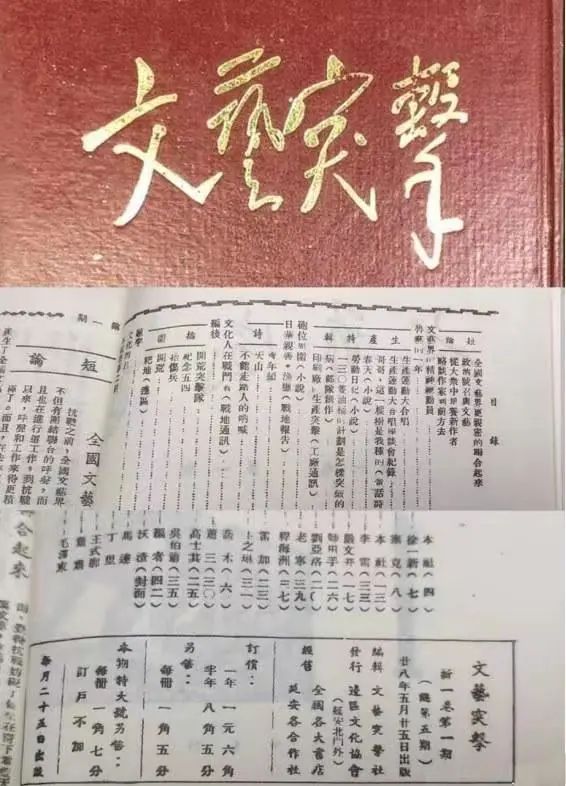
"Ke Zhongping's life is the life of the revolution, the life of fighting, and a life -threatening life. A famous poet who dedicated his life to the Chinese people's revolutionary cause. The evaluation and praise of Ke Zhongping also outline Ke Zhongping's bumpy and full of struggle spirit.
"The people are immortal, and the poets who loyal to the people are also immortal. Comrade Ke Zhongping is a veritable people's poet and is a great poet who has achieved great achievements in the history of the development of Chinese revolutionary poetry. And the future. "The famous poet He Jingzhi evaluated the poet so accurate and willingly.
The writer of "The Yellow River Chorus" and the famous poet praise the poets with high praise: "The pioneer of the proletarian poetry, the revolutionary cultural warrior, Comrade Ke Zhongping, will never be immortal."
The writer Cao Guxi said: "I respect the batch of poets of Ke Lao and his contemporaries. The position of the poets and their poets in the Chinese poetry are historically conclusive. The value of a poet lies in his country and nation. The sense of responsibility and mission. Ke Lao's poets can be called the real people's poet. "This evaluation is just right for Ke Zhongping.
The poet is "a fire" to the motherland, the people, and the poetry. Like Ke Zhongping, Ms. Li Jiantong, who was killed for writing the novel "Liu Zhidan", praised him like this: "The poets of the people are loved by the people, and they will always live in the hearts of the people." This may also express the voice of many people. This is how Ke Zhongping came from Yan'an and walked on the road of serving workers, peasants and soldiers throughout his life.
(Ding Jing Department Ke Zhongping's daughter, Ding Satellite Card Ke Zhongping, the granddaughter of the outer granddaughter of the Ding Yan department Ke Zhongping)
Content source: "Literature and Art", June 24, 2022, 2 version 2 edition
WeChat editor: Lu Yimeng
- END -
Tongsheng Tongyin said that Hakka learns literature and inherit the good family style
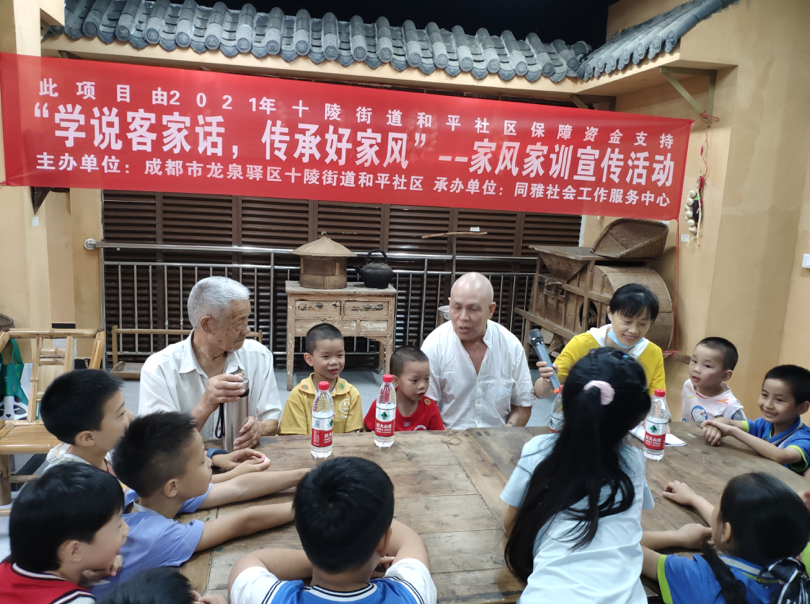
Do you speak Hakka?As a long -distance language, Hakka dialect has gathered many a...
The Zhangye Cultural Relics Protection Research Institute was awarded the title of advanced units of the Special Survey of Grottoes Temple in the country
China Zhangye News (reporter from Zhangye City Rong Media Center) Recently, the State Administration of Cultural Relics has notified the advanced units and outstanding individuals in the special surve